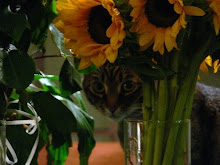A Blog is odd in that there are no rules to it. You are not restrained by word counts or topics or anything else. The fact that it is not private and there is a very limited audience does play a little in ones’ mind. It is my intent to read a lot during this time (again intent and actuality are different sides of the same coin) so for my own satisfaction, I am going to write about what I am reading.
Every Man Dies Alone
By Hans Fallada
first published in 1947
English Edition 2009
Mellville House Publishing
A book as cheerful as the title sounds. Berlin, early in the Second World War: Germany is flush with the thrill of victory over France. Victory over England is at the time and whim of the Fuhrer. But a letter is delivered to Otto and Anna Quangel. Their only son, Otto, has died a hero’s death for Fuhrer and Fatherland.
Unlike the Persickes, their Nazi, Hitler-loving neighbours, the Quangels know there is no glory or honour in Otto’s death - just sorrow and blackness. So they embark on a quiet campaign of writing and dropping post cards that offer simple messages in public places. The first one is typical of the remainder:
Mother! The Fuhrer has murdered my son. Mother! The Fuhrer will murder your sons too, he will not stop until he has brought sorrow to every house in the world.
Retyping this in 2010 seems almost banal, the words are not particularly powerful or interesting. But of course in Berlin of 1940, writing the words was a death sentence.
The story tells of the dropped cards, the horror of those who found the cards, the search by the Gestapo for the writers, the petty informers, the common thieves, the desperation and fear of the people, the guilt, the arrogance of the elite, the compassion and bravery of the few.
The Quangels are the heroes of the book but they are nothing like the heroes of Hollywood. They know their fate before they start and in the end still accept all that they must endure before their deaths. The book really shows the success of the Nazis. By creating a society that runs on fear, the informants are like starving dogs and will do anything for the smallest scrap. Goons and bullies rise to the top like witches cream in the devil’s dairy. Decency, fairness, compassion, truth, integrity, and anything vaguely good are as rare as a blossom in the January snow.
The thing that really makes me uncomfortable is how I would fare in that place at that time. Would I have the courage to be an Otto Quangel and swim against the stream despite the continual risk and danger? Would I be like Judge Fromm and be unflinching from the high standards that have governed my life so far and not let a new order change them? Or would I be like young Baldur Persicke who embraces every evil as the new normal and the only way to get ahead? Or maybe I would be the bottom feeding rat that does anything to anybody just to live another day? I do not know the answer and likely do not want to know the answer.
This book was written by someone who was there and I have no reason to think that this work of fiction , based on actual Gestapo files, is not a realistic picture of the way things were. If this book has a lesson, it is that we must do everything to avoid descending into the world described. It would be nice to think that that is impossible, but as we move into a future of reduced resources, radicalization of religion, nationalism, and willingness to have our lives monitored, it is not the time to reduce our vigilance.
In summary – a dire, depressing, great read.
Saturday, January 2, 2010
Subscribe to:
Post Comments (Atom)

No comments:
Post a Comment